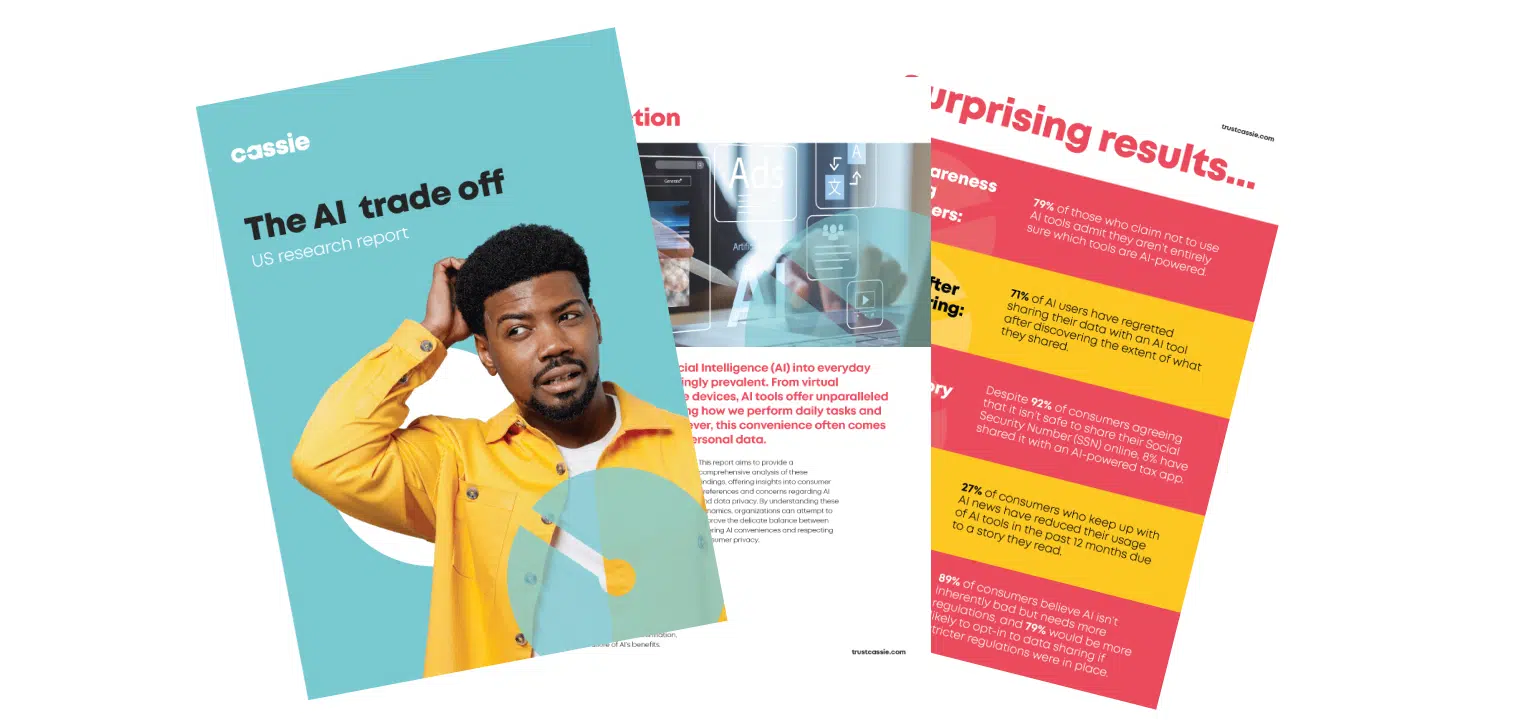New research: How are Americans using AI?
Posted: October 21, 2024
Artificial intelligence (AI) is not a new phenomenon. While it’s certainly become more advanced in recent years, AI technology has been around for more than half a century.
Over time, we’ve seen AI become more accessible and useful for everyday life: GPS navigation systems, smart home devices like Amazon’s Alexa, and even minute features like autocorrect have changed our relationship with technology. We’ve learned to lean on AI for assistance, information, and convenience – and this has only become more pronounced with the recent advent of generative AI. However, do we even know when we’re interacting with it?
Today, AI is everywhere we turn. It powers the chatbots on brands’ websites. It offers the first suggested result on every Google search. It helps us speed up tasks that would otherwise slow us down.
To get a better understanding of exactly how everyday Americans are interacting with and taking advantage of AI technology, we surveyed over 600 adults living in the United States. We found that the vast majority of respondents (77%) use AI in their personal lives. Others use it for work (39%) or school (13%). A small fraction are holdouts – 14% confessed they don’t use AI at all.
As we settle into artificial intelligence’s latest era, what are its most common use cases? Let’s explore.
AI makes life easier
Per the AI Trade Off study, the most common use case for AI is online search. Six in ten respondents told us they use artificial intelligence for this purpose, whether they’re relying on Google’s AI-generated search results or using open source tools like ChatGPT to locate refined results from the world wide web.
This is a massive shift for online search behaviors; Google has been so ubiquitous as a platform that its name is literally a verb for the act! Now, a large contingent of the population is changing how they search for information. We’ll continue to see this accelerate over time, which introduces concerns on whether people can trust the results AI gives them. There’s already examples of AI being prone to ‘hallucinations’, whereby it provides inaccurate information.
More than half (54%) of AI users rely on AI-powered virtual assistants, while 47% use a cell phone with AI capabilities. Approximately one in four use AI-powered smart home devices. This technology helps with any number of daily tasks, leading more than a third (34%) of AI users to say AI is a big part of their daily life. Note: those who use AI for work were 38% more likely than average to say this, which further reinforces AI’s ability to streamline administrative work and improve productivity.
Folks who listed AI as a big part of their daily life are using it to:
- Play music (67%)
- Check the weather (63%)
- Set reminders (62%)
Many are venturing beyond simply asking Siri for the forecast: 83% of AI users are turning to generative tools, the latest instance of AI innovation. But this technology is still in its infancy, leaving the door open for data breaches and major privacy concerns.
As AI takes hold across every industry (and across many aspects of our lives), how well do we really understand the risks associated with it? How much does the average user actually know about the technology? What will it take for the holdouts to get on board?


